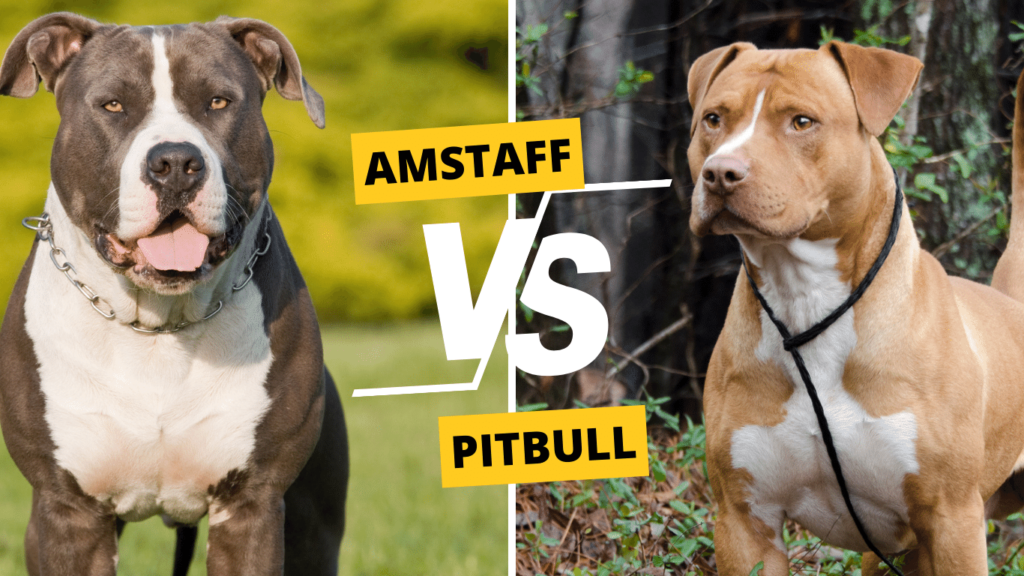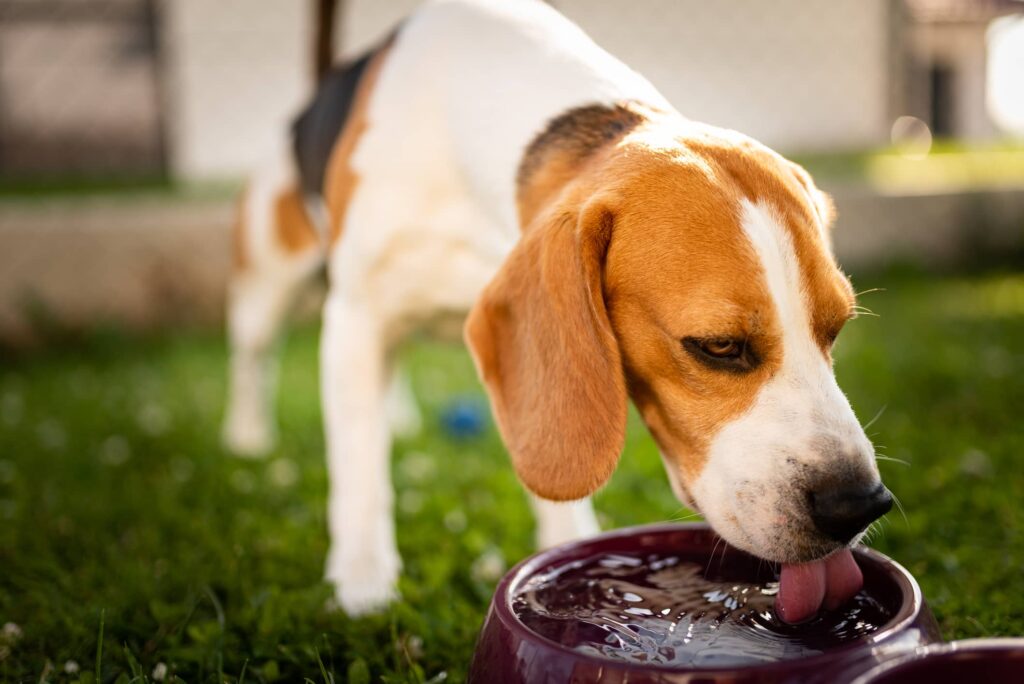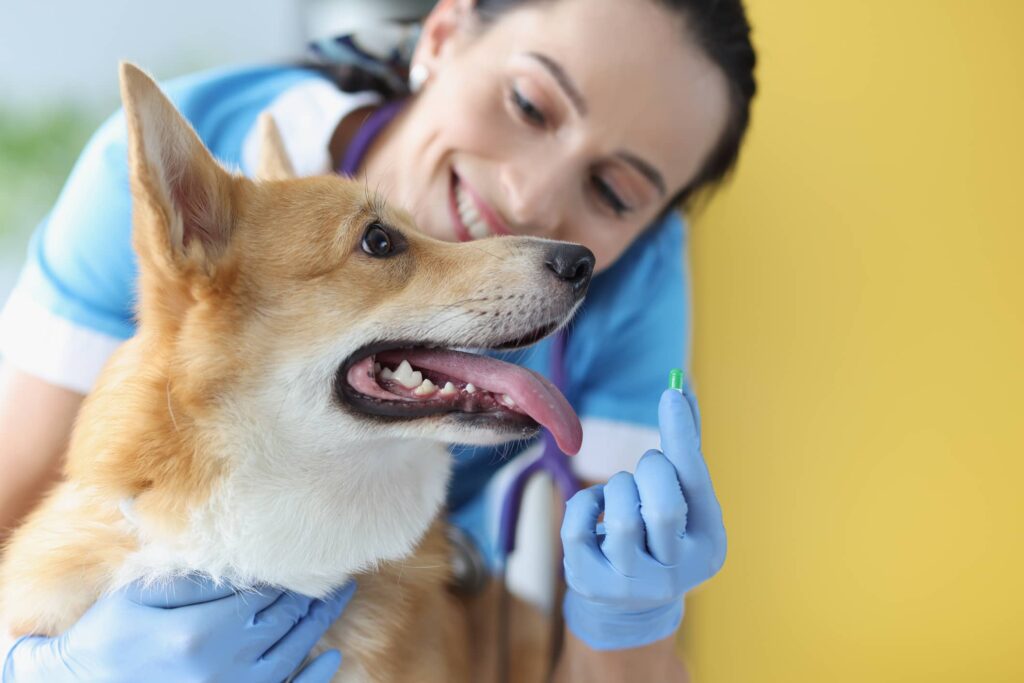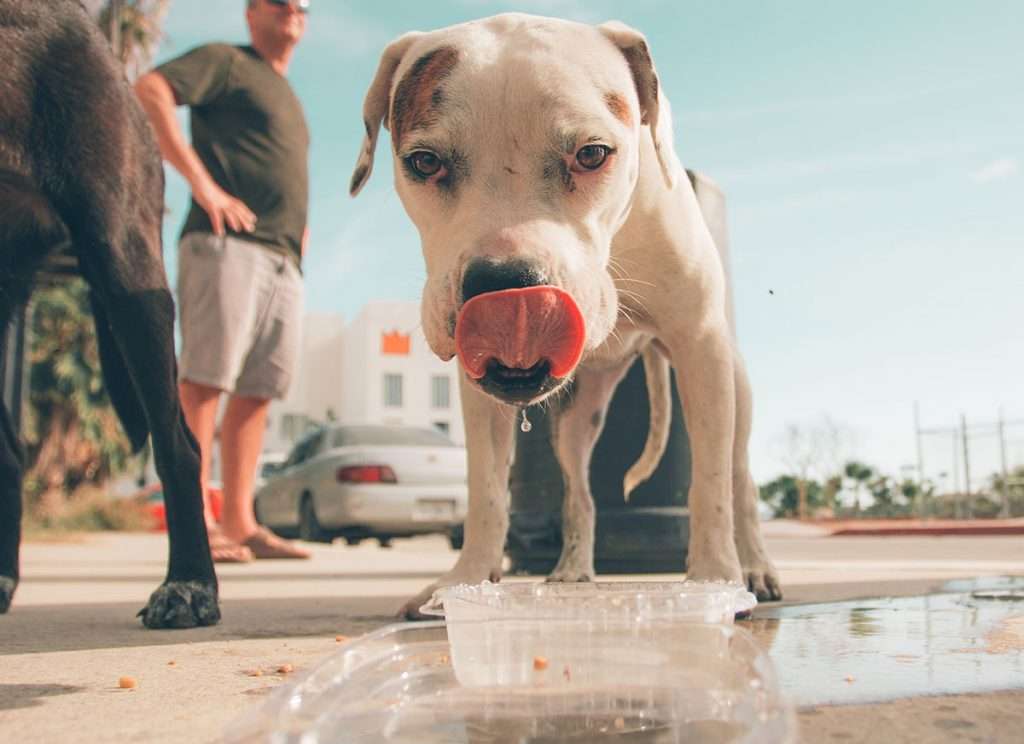
Dog Won’t Eat or Drink and Just Lays There: Here’s What To Do
-
 By
Victoria Bennett
By
Victoria Bennett
- Last updated: October 14, 2023

Dogs are known for being loyal and lovable companions, but when your dog stops eating or drinking, it can be a cause for concern. Lethargy, lack of appetite, and dehydration are all serious symptoms that can indicate your dog is sick. If your dog won’t eat or drink and just lays there, it shouldn’t be a cause for panic. While it’s an indication that there’s something wrong, there are a few things you can do to help your dog feel better.
Table of Contents
Common Causes Of Lethargy In Dogs
Many dog owners have experienced the frustration of trying to get their furry friends to play fetch, only to have them collapse in a heap after a few minutes. While this may be amusing at first, it can soon become a cause for concern. Lethargy is a common problem in dogs, manifesting in just laying in one corner of the house, refusing to eat, drink, or having zero interest in playing with toys.
There are many possible causes of lethargy in dogs, ranging from minor to serious. Some common causes include:
Lack of Sleep
Dogs are known for their boundless energy and enthusiasm for life. However, even the most active dog can have his energy levels dip from time to time. When a dog consistently seems tired and lethargic, it may be due to a lack of sleep. Just like humans, dogs need enough sleep and rest to function at their best.
If your dog isn’t getting enough shut-eye, he may start to show signs of fatigue, such as yawning and stretching more often, being less interested in playing or going for walks and having difficulty getting up in the morning. This may also manifest in their lack of appetite and interest in food.
There are a few things you can do to help your dog get the sleep he needs, including:
- Providing a comfortable place for them to rest, such as a soft bed or mat
- Ensuring the environment is quiet and dark
- Establishing a regular sleep schedule
- Limiting their exercise before bedtime
If your dog is showing signs of fatigue, it’s essential to take him to the vet to rule out any underlying medical conditions. Once you’ve ruled out any health problems, you can start to implement some of the above strategies to help your dog get a good night’s sleep.
Parasites
There’s always a possibility that your dog’s lack of appetite and dehydration is caused by parasites. While this may not be the most pleasant topic to think about, it’s important to consider all possibilities when trying to determine the cause of your dog’s symptoms. Intestinal parasites are more common in puppies, as they can pick up the parasite from their mother’s milk or from contaminated soil.
However, adult dogs can also be infected, especially if they eat something that is contaminated with parasitic eggs. The most common symptom of a parasitic infection is diarrhea, but your dog may also vomit, have a poor appetite, and lose weight.

Vaccinations
It’s not uncommon for dogs to be a little lethargic after receiving vaccinations. This is because the vaccine contains a small amount of live viruses, which can cause your dog’s immune system to work overtime. As a result, your dog may feel tired and have a decreased appetite.
If your dog has just been vaccinated, it’s important to give him some time to rest and recover. However, if his symptoms persist for more than a few days, it’s a good idea to take him to the vet to rule out any other possible causes.
Also, ensure that you observe your dog closely for any other symptoms, such as vomiting, diarrhea, or fever, just to rule out any other potential causes.
Heart Disease
Heart disease is a common cause of lethargy in dogs. If your dog has heart disease, his heart may not be able to pump enough blood to meet his body’s needs. This can lead to low energy levels and a general feeling of fatigue.
Other symptoms of heart disease include:
- Coughing
- Difficulty breathing
- Exercise intolerance
- Weight loss
If you suspect that your dog may have heart disease, it’s important to take him to the vet as soon as possible. Heart disease is a serious condition that can be fatal if left untreated, so early diagnosis and treatment are essential.
Pain or Discomfort
The third reason your dog may not be drinking or eating is due to pain or discomfort. If they’re experiencing any kind of physical pain, it’s understandable that they wouldn’t want to eat or drink. This could be due to an injury, surgery, illness, or even just teething pain. Furthermore, they may not want to put any pressure on their sore stomach if they have gastrointestinal issues.
Additionally, even if there’s no apparent medical reason for their discomfort, it could still be causing them stress or anxiety. In this case, offering them a calm and comfortable environment and plenty of TLC may help encourage them to eat and drink.
Kidney Disease
One of the more serious causes of lethargy in dogs is kidney disease. This is a condition that can affect dogs of all ages and breeds, although it’s more common in older dogs. Kidney disease occurs when the kidneys are unable to filter out toxins from the blood properly. This can lead to a build-up of toxins in the body, which can make your dog feel very tired and unwell.
Other symptoms of kidney disease include:
- Vomiting
- Diarrhea
- Loss of appetite
- Dehydration
- Weight loss
- Muscle weakness
Taking them to your vet for regular physical exams and blood tests can help diagnose kidney disease before it becomes too serious. If your dog is diagnosed with kidney disease, the vet will likely recommend a special diet and medication to help manage the condition.
Other Medical Conditions
Your dog’s refusal to drink or eat water could be symptomatic of a larger medical issue. One such condition is diabetes, which can cause increased urination and thirst. If your dog isn’t drinking water, they may become dehydrated, leading to excessive panting, lethargy, and dry skin.
Another possibility is Cushing’s disease, which can cause increased appetite and thirst. If your dog has Cushing’s disease, they may also suffer from hair loss, muscle weakness, and changes in behavior.

What To Do If Your Dog Won't Eat Or Drink
It’s sometimes alarming when our furry friends suddenly show a decrease in appetite or won’t drink water. Sometimes, it could be caused by a simple issue, such as teething pain or stress. However, it could also be a sign of a more serious medical condition. If your dog won’t eat or drink and is showing other concerning symptoms for more than 24 hours, here are some things you can do:
Bring Your Dog to the Vet
One of the first things you should do if your dog won’t eat or drink is to bring them to the vet. The vet will be able to give you a better idea of what may be causing the problem and recommend the best course of action.
Blood work can be done to check for things like anemia or dehydration, and x-rays can be taken to look for anything foreign in the stomach or intestines. If everything comes back normal, then it’s likely that your dog is just experiencing a minor stomach upset or something similar that will resolve itself soon.
Give Them Smaller, More Frequent Meals
One strategy is to give them smaller, more frequent meals. This can help to stimulate their appetite and make them more likely to eat. Another option is to try different types of food or water. Some dogs prefer wet food, while others may prefer chicken broth or ice cubes.
Provide a Calm and Comfortable Environment
If your dog is experiencing stress or anxiety, it may be helpful to provide them with a calm and comfortable environment. This means keeping things quiet and avoiding any loud noises or sudden movements. Aromatherapy also works in dogs. However, since dogs are more sensitive to smell than people, make sure that the essential oil you’re using is diluted properly.
You can also try placing a shirt that smells like you in their bed. This will provide them with some comfort and familiar smells when you’re not around.
Try to Encourage Them to Drink Water
If your dog doesn’t drink water, you can try adding some flavor to it with chicken broth or dog-safe fruit juice. You can also try freezing it into ice cubes or giving them wet food that contains a lot of moisture.
You may also try adding a drop or two of plain, unsweetened yogurt into the water. Some dogs find this delicious! Some dogs will also drink from a running faucet. Just be sure to supervise, so they don’t drink too much too fast and make themselves sick.
In severe cases, your vet may recommend that your dog be hospitalized for IV fluids. This is usually only necessary if your dog is severely dehydrated or if they have another medical condition that needs to be treated.
Place Them on a Special Diet
If your dog has a medical condition that is causing them to refuse food or water, the vet may recommend placing them on a special diet. This diet will be tailored to their specific needs and may include things like increased fiber or more protein, depending, of course, on the condition.
In some cases, your dog may need to be tube-fed or given IV fluids. This is usually done in more serious cases where the dog is at risk of dehydration or malnutrition.

Bringing Your Dog To The Vet
If your dog has skipped one meal and you’ve noticed that he/she is drinking water and acting normal otherwise, then there’s likely no cause for concern. However, if your dog won’t eat or drink and is showing other concerning symptoms, it’s best to bring them to the vet as soon as possible.
As mentioned earlier, the vet will be able to run some tests and figure out what may be causing the problem. In most cases, it’s nothing serious and can be easily resolved. Your dog might just be stressed and needs a good sleeping environment, or they may need a special diet.
Otherwise, if they have been showing lethargy and haven’t been eating or drinking for the day, taking them to the vet is your best bet. You don’t want to wait too long as they can become dehydrated quickly. Dehydration can lead to more serious problems, so it’s always best to err on the side of caution.

Final Thoughts
Your dog losing his appetite and refusing to get up from his bed is a sad sight. However, in most cases, it’s nothing to worry about and can be easily resolved. Just make sure to keep an eye on him, provide him with a calm environment, and try some of the tips above. If his symptoms persist or worsen, always remember that getting him checked by a professional is always your best bet.
The most important thing is to not panic and to stay calm. Dogs can sense our emotions, so they will likely pick up on that if we’re feeling worried or stressed. Just take things one step at a time, and everything will be alright in the end.
Frequently Asked Questions (FAQ)
How do you hydrate a dog that wont eat or drink?
Addressing a situation where a dog refuses to eat or drink requires immediate attention and a swift response, as such behavior can be indicative of an underlying health issue or serious condition. First and foremost, it’s pivotal to consult with a veterinarian to establish the root cause of the refusal to ingest food or water, ensuring that the course of action undertaken is safe and suitable for the dog’s particular circumstances. In the interim, several strategies can be employed to encourage hydration, such as offering ice cubes to lick, gently administering water using a syringe (without a needle), or attempting to make water more appealing by adding a splash of low-sodium chicken broth. Care should always be taken to introduce water gradually and gently to prevent the risk of aspiration.
If it’s established that the refusal to drink is linked to an illness, and particularly if dehydration has set in, the veterinarian may administer subcutaneous fluids to provide immediate hydration. This process involves introducing fluids under the dog’s skin, usually at the veterinary clinic, although in some instances and with appropriate guidance, it might be conducted at home. Additionally, depending on the specifics of the situation, vets may recommend providing a homemade electrolyte solution or wet food to ensure that the dog receives some level of hydration and nutrition. Importantly, throughout the process, continual monitoring of the dog’s condition and close communication with the vet will be vital to safeguard its health and wellbeing.
What does it mean when an old dog stops eating and drinking?
When an elderly dog suddenly stops eating and drinking, it could be a sign of various health issues, and it often warrants immediate attention due to the critical role that nutrition and hydration play in overall well-being. Various factors could contribute to this behavior, including dental issues, which might make chewing or swallowing painful, gastrointestinal problems, kidney disease, or even cancer. Psychological factors, such as depression or anxiety, might also play a role, particularly if there have been recent changes in the household or routine that could be distressing for the dog. Understanding the root cause of the sudden change in appetite and drinking habits typically requires a thorough veterinary examination, which might include blood tests, urinalysis, imaging studies, or other diagnostic procedures to pinpoint the underlying issue and formulate a plan of action.
It’s also crucial to consider the quality of life of an elderly dog that ceases to eat and drink, as, in some instances, this behavior may be an indication that the dog is nearing the end of its life and is naturally withdrawing. In these situations, palliative care or humane euthanasia might be discussed with the veterinarian to ensure that the dog’s remaining time is as comfortable and pain-free as possible. In all cases, ensuring that the dog’s physical and emotional needs are being met and that any interventions or treatments align with maintaining or improving the quality of life is paramount. Always work closely with a veterinarian to navigate through the challenging and sensitive matters regarding the health and wellbeing of an aging pet.

Victoria Bennett
About Us
Welcome to doggie site. We stand as the ultimate hub for dedicated dog enthusiasts, combining years of expertise and passion to bring you unparalleled canine insights. Established by a team of canine experts, our platform is rooted in evidence-based practices and a genuine love for dogs, ensuring that you receive the best advice and information.
Latest From Our Blog





















